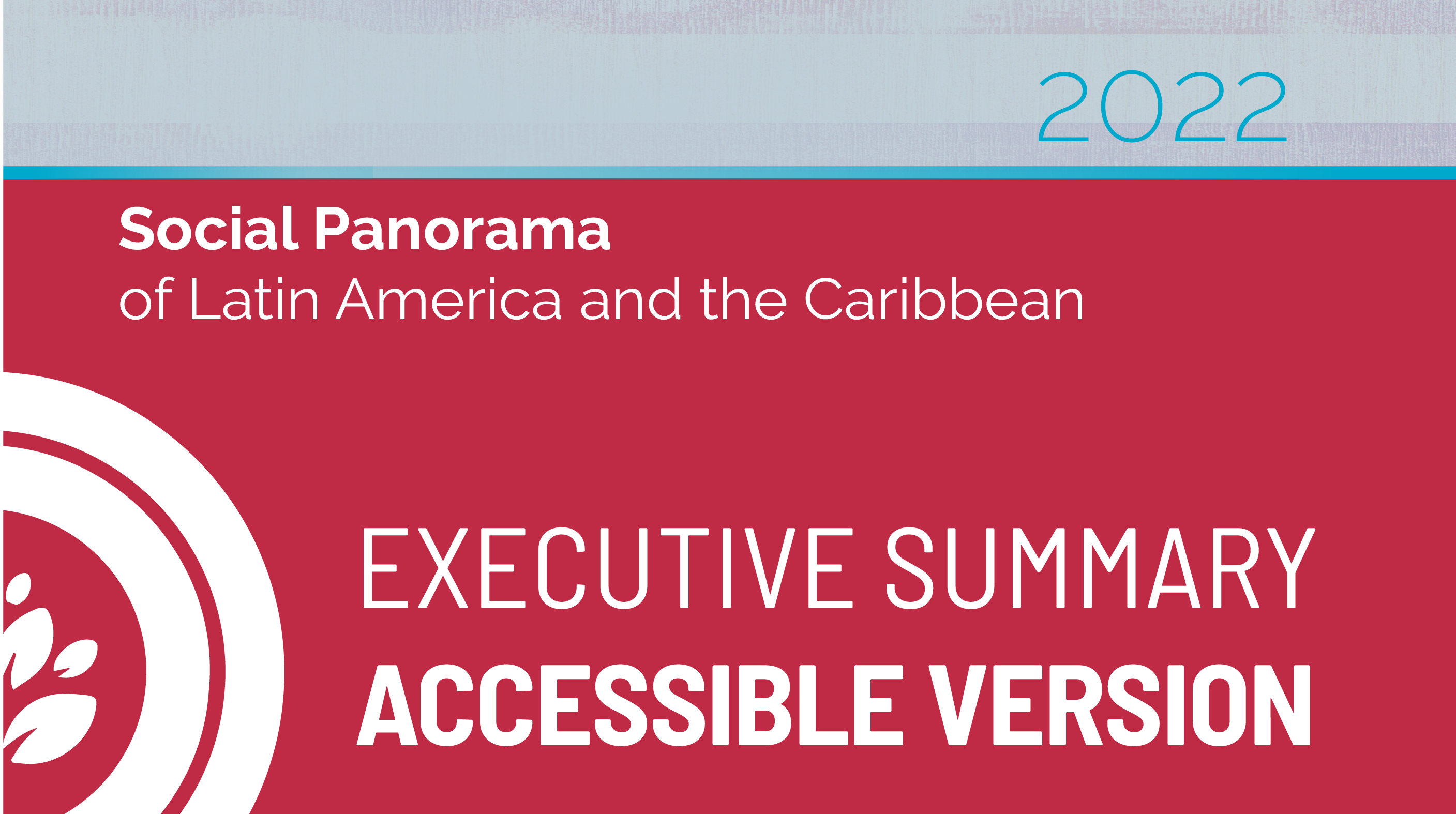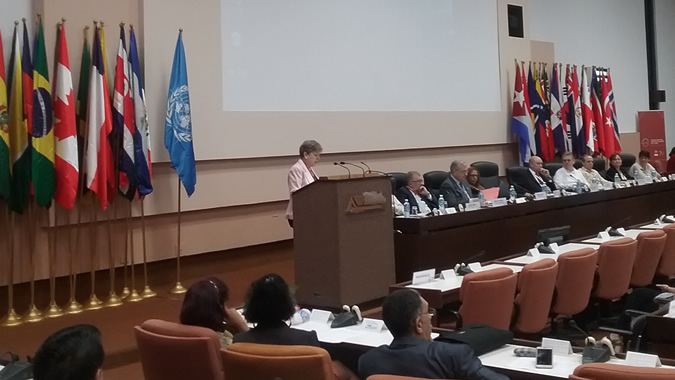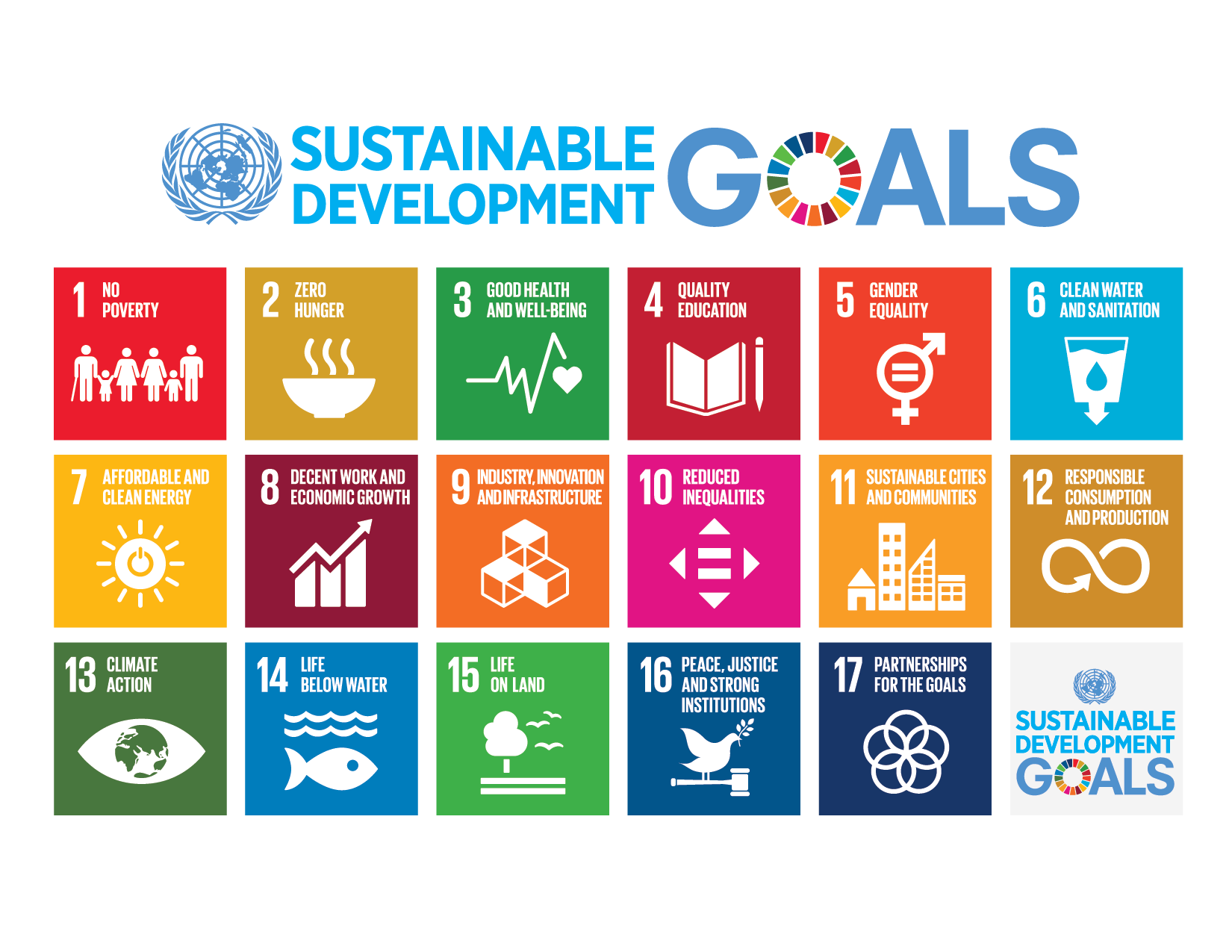Activities
Upcoming activities
-
29 - 30 April 2025 | Event | Commitees

Twenty-fourth meeting of the Executive Committee of the Statistical Conference of the Americas of ECLAC
The twenty-fourth meeting of the Executive Committee of the Statistical Conference of the Americas will be held virtually from 29 to 30 April 2025....
-
5 - 9 May 2025 | Event | Meetings and technical symposiums

National capacity building workshops in statistical analysis
The overall objective of the training is to strengthen the skills level of policymakers and technical officers of the Government of Grenada in statist...
-
15 May 2025, 09:00 - 12:00 | Event | Meetings and technical symposiums

Accelerator Session at the World Circular Economy Forum 2025
The event "Measuring Progress and Promoting Circular Economy Indicators in Latin America and the Caribbean" is organized by ECLAC, UNOSD, UN-DESA and ...
-
24 June 2025, 16:30 - 18:00 | Event | Meetings and technical symposiums

Side Event Presentation of the document "Education and the development of digital competences in Latin America and the Caribbean"
The objective of the event is to deepen the debate on effective strategies to reinforce the school-to-work transition of future generations in order t...
-
ECLAC: Dual Social and Labor Inclusion is Indispensable for Avoiding Rollbacks
25 October 2017 | Press ReleaseOn Wednesday, the Second Meeting of the Regional Conference on Social Development in Latin America and the Caribbean, which is a subsidiary body of ECLAC, was inaugurated in Montevideo with a call for articulating economic, social and environmental policies to achieve dual social and labor inclusion in the region, based on the need for a change in the development pattern. The ceremony was led by Rodolfo Nin Novoa, Uruguay’s Foreign Minister, who spoke on behalf of President Tabaré Vázquez; Alicia Bárcena, Executive Secretary of the Economic Commission for Latin America and the Caribbean (ECLAC…
-
China: current and potential role in infrastructure investment in Latin America
28 February 2020 | PublicationChina’s investments are one way for expanding infrastructure that many Latin American countries have been seeking through Public-Private Partnerships (PPP). To attract and retain the interest of the private sector, the existence of a proper, strong governance, as well as stable and sound legal frameworks is paramount. Decision-making and implementation processes also need to be improved to ensure that the match between the infrastructure investment needs in Latin America and the Chinese financing capabilities effectively results in a leap towards the improvement of infrastructure in quantity a…
-
Social Panorama of Latin America and the Caribbean, 2022. Executive summary: accessible format
ECLAC Calls For a Boost to Structural Change with Equality Based on Innovation, Training and Employment
(27 June 2013) The Executive Secretary of the Economic Commission for Latin America and the Caribbean (ECLAC), Alicia Bárcena, described the risks faced by Latin American economies to regional authorities meeting in Panama City, Panama, and called for a boost to policies that promote innovation, training and employment with rights. On 26 June, the most senior official of this United Nations regional commission took part in the 6th Ibero-American Conference of Ministers of the Economy and Finance, which is being held as part of preparations for the 23rd Ibero-American Summit of Heads of State a…
ILPES Programme of work, 2016-2017. Subprogramme 10: Planning of public administration
Country cases cluster 2: Costa Rica | Ecuador | Dominican Republic
Cluster 2 focused on fortifying the capacities of selected countries in the region, so they can take advantage of the digital change in a broad and inclusive way. The convergent approach included the areas of industry 4.0 (such as infrastructure, digital technologies, types of companies, business models), social inclusion and gender equality (social protection, education, training and more), as well as industry 4.0 and its impact on labor markets ("work of the future"). In three LAC countries, the Dominican Republic, Costa Rica and Ecuador, the ECLAC-BMZ/giz program supported the integration o…
ECLAC and Cuba Join in a Dialogue about its Path to Sustainable Development
A gaming application that teaches players how to protect themselves against natural disasters: Tanah – The Tsunami & Earthquake Fighter
A free gaming app has been developed as part of the “More education, less risk” project implemented by UNESCO in partnership with Save the Children and Plan International, with the support of the European Union’s Humanitarian Aid Office. It aims to teach children how to protect themselves against natural disasters. Players have to help Tanah, the main character, advance through 21 levels of the game and overcome different adversities to save her family and her people. The first seven levels address prevention issues (recognition of emergency alarms, signage, existence of evacuation plans and p…
Major statistical publications- abstracts. Vol XI
The Economic Commission for Latin America and the Caribbean (ECLAC) Subregional Headquarters for the Caribbean/secretariat for the Caribbean Development and Cooperation Committee (CDCC) takes pleasure in presenting the tenth volume of the Major Statistical Publications – Abstracts. This publication is a one stop for information on all statistical publications currently produced and/or in circulation by all ECLAC/CDCC member countries.…
Young People Under 24 from Rural Areas Constitute the Greater Part of Emigration from Northern Central America
Young people under 24 years of age coming from rural areas constitute the greater part of emigration from northern Central America. This according to the document Atlas of Migration in Northern Central America, launched today in Marrakech by the Economic Commission for Latin America and the Caribbean (ECLAC) and the Food and Agriculture Organization of the United Nations (FAO). The document was presented by Alicia Bárcena, ECLAC’s Executive Secretary, and Kostas Stamoulis, Assistant Director-General of the FAO’s Economic and Social Development Department, at a press conference held in the fram…
Foreign Investment in Latin America and the Caribbean 1999
This study attempts to contribute to a better understanding of foreign direct investment (FDI) in Latin America and the Caribbean by examining the plentiful but disparate statistical information available on the subject within the context of a conceptual framework based on an analysis of corporate strategies. The research programme of the Unit on Investment and Corporate Strategies is structured around the analysis of the specific situations of individual investor countries and of FDI recipient countries and destination industries in the region. This research, combined with the statistical inf…
The millennium development goals and the challenges facing Latin America and the Caribbean in making progress towards higher levels of well-being, better human capital and more equal opportunities
This document takes up a number of the points raised in the 2005 report by ECLAC and other UN agencies on the Millennium Development Goals (MDGs) in Latin America and the Caribbean. It provides further discussion on the type of problems and challenges facing the region in five areas that are either included in the MDGs or closely related to them (poverty, hunger and child malnutrition, education, health and children). The document makes recommendations for the region's governments and countries in these five areas.…
Social Panorama of Latin America 2010
In 2010 the Economic Commission for Latin America and the Caribbean (ECLAC) proposed a comprehensive development strategy entitled Time for equality: closing gaps, opening trails (ECLAC, 2010). From a rights-based perspective, development is treated as an indivisible, rights-based process in which synergies are created between a macroeconomy that pushes back the frontiers of growth as an engine of employment and social inclusion; productive development that drives greater convergence between sectors and labour-market stakeholders to create a more diversified, innovation- and knowledge-intensiv…
ECLAC Calls on the Region to Change the Development Paradigm to Confront Climate Change, Taking Ownership of the 2030 Agenda
The countries of Latin America and the Caribbean must change their development paradigm, taking ownership of the 2030 Agenda to confront climate change, which is one of the major challenges of the 21st century due to its global causes and consequences, Alicia Bárcena, Executive Secretary of the Economic Commission for Latin America and the Caribbean (ECLAC), affirmed today. The United Nations organization’s most senior representative led the launch of the report The Economics of Climate Change in Latin America and the Caribbean: A Graphic View, which was commented upon by Marcelo Mena, the Chi…
The economics of climate change
ECLAC Will Present Special Report on the Opportunities and Challenges that Lithium Poses for Latin America and the Caribbean
Latin American and Caribbean Growth Will Be 3.5% in 2013
(23 April 2013) On average, Latin American and Caribbean countries will grow by 3.5% in 2013, thanks to buoyant internal demand and the improved performance of Argentina and Brazil compared with 2012, according to new projections presented today by ECLAC. The Economic Commission for Latin America and the Caribbean launched its Updated economic overview of Latin America and the Caribbean 2012, which updates the figures and information from last December's Preliminary overview of the economies of Latin America and the Caribbean 2012. The 2013 results are partly due to the expectations of higher …
Progress report on the 2011 round of the international comparison programme in Latin America and the Caribbean
About the Comprehensive Development Plan
.mb-2 { margin-bottom: 1.5rem !important; } .space { margin: 3rem 0 !important; } .radix-layouts-content { flex: 0 0 100% !important; max-width: 100% !important; } .radix-layouts-sidebar { display: none !important; } img { border-radius: 0px; border: none; } h1, h2, h3, h4, h5, h6, p { padding: 0; margin: 0; margin-block-start: 0; margin-block-end: 0; margin-inline-start: 0px; margin-inline-end: 0px; line-height: 13…



